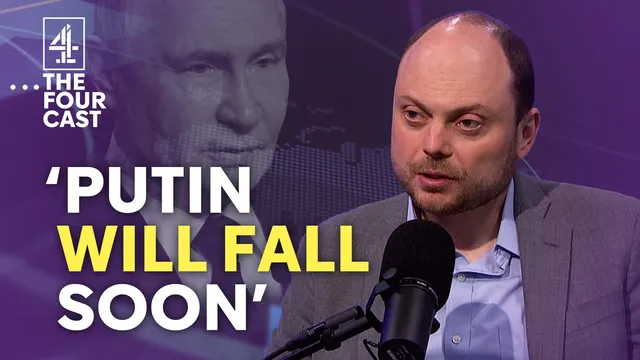
Russia celebrates 80 years since defeating Nazi Germany amid ongoing conflict
2025-05-09 10:30- Russia held a grand military parade in Moscow's Red Square on May 9, 2025, marking the 80th anniversary of its victory over Nazi Germany during World War II.
- The event was attended by prominent world leaders, including Chinese President Xi Jinping, signifying Russia's effort to strengthen international alliances amid the ongoing conflict in Ukraine.
- Despite the celebration, the atmosphere was overshadowed by Ukrainian drone attacks and heightened security measures, reflecting the ongoing tensions and complexities surrounding the event.
Express your sentiment!
Insights
On May 9, 2025, Russia commemorated the 80th anniversary of its victory over Nazi Germany in World War II with a grand military parade held in Moscow’s Red Square. The event was attended by significant global leaders, including Chinese President Xi Jinping and Brazilian President Luiz Inácio Lula da Silva, demonstrating Russia's efforts to strengthen ties with allies amid ongoing tensions with the West. This year, amid the backdrop of Russia's prolonged conflict with Ukraine, the celebration took a toned-down approach compared to previous years, reflecting the national and international complexities surrounding the event. Historically, Victory Day, celebrated annually on May 9, serves as a reminder of the Soviet Union’s enormous sacrifices during the war, which resulted in an estimated 27 million deaths. The Russian government has increasingly utilized this day for propaganda purposes, framing current military engagements as continuations of those historical sacrifices. In particular, as the conflict in Ukraine persists, the day exemplifies the Kremlin’s attempt to bolster national pride while projecting strength on the global stage. However, this year's celebrations were marred by disruption from Ukrainian drone attacks targeting Moscow, prompting heightened security measures by Russian officials in preparation for the parade. In the lead-up, there were significant cancellations and delays of flights to and from the capital, underscoring the tension and fragility of the situation. Attendees of the parade, including dignitaries and military representatives from allied nations, experienced logistical challenges caused by the conflict and the wider geopolitical dynamics at play. In his speech during the parade, President Vladimir Putin praised the courage of Russian troops engaged in the ongoing war, suggesting a need for unity and resolve among the population as the country faces external pressures. The day also featured a display of military equipment and personnel, with over 11,500 troops participating alongside advanced military vehicles, emphasizing Russia’s military readiness. While the Kremlin had declared a unilateral ceasefire for the celebrations, reports indicated that Russian military actions continued, contributing to a narrative of skepticism regarding the sincerity of such peace overtures.
Contexts
Victory Day in Russia, celebrated on May 9th, marks the anniversary of the defeat of Nazi Germany in World War II, which is a pivotal moment in the country's history. The day is a significant public holiday, commemorating the immense sacrifices made by the Soviet Union during the war and celebrating the victory that solidified its role as a major power in the post-war world. The roots of Victory Day trace back to 1945 when the German forces formally surrendered and marked the end of what was known in Russia as the Great Patriotic War. Following the war, the day became a symbol of national pride and resilience, with festivities reflecting the collective memory and mourning of the lives lost during the conflict, estimated to be in the tens of millions for the Soviet Union alone. In the decades following the war, May 9th became an occasion for large-scale military parades and public celebrations across Russia and other former Soviet states. The most prominent of these parades occur in Moscow's Red Square, where troops, military vehicles, and aerial units display their strength in a show of national pride. This spectacle has evolved over the years, incorporating advancements in military technology and showcasing the Russian armed forces' contemporary capabilities. The celebrations not only honor veterans but also serve to reinforce national identity and unity, emphasizing the historical importance of the war and Russia's sacrifices in achieving peace and stability in Europe. The observance of Victory Day has also taken on significant political undertones, particularly in the post-Soviet era. Leaders have utilized the holiday to consolidate national identity and promote patriotism, often presenting it as a reminder of past triumphs against foreign adversaries. This narrative has gained renewed vigor under contemporary leadership, positioning Russia as a defender against perceived external threats. Additionally, the day has become an opportunity for public displays of reverence for fallen soldiers, often characterized by the "Immortal Regiment" movement, where descendants of veterans march with portraits of their ancestors, bridging the generational gap and collective memory of sacrifice. In contemporary society, Victory Day elicits a mix of national pride and reflection on the horrors of war, drawing attention to the sacrifices borne by individuals and families. It is a day steeped in solemn ceremonies, emotional tributes, and a commitment to honor those who fought for freedom and peace. As the country continues to commemorate this important date, it reinforces the historical narrative surrounding World War II and solidifies the cultural significance of Victory Day as an essential aspect of Russian identity. The legacy of this day, marked by both celebration and remembrance, will likely resonate for generations to come as part of Russia's national consciousness.